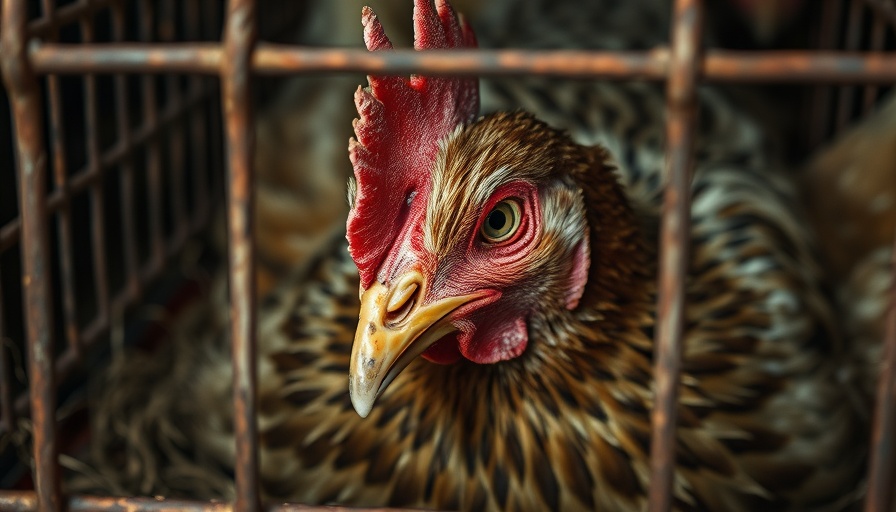
Hidden Truths About Egg Production: What You Didn't Know
In a shocking revelation that has stirred global concern, an investigation led by the Open Wing Alliance has exposed the appalling conditions in which egg-laying hens are kept in more than 35 countries. The report highlights systemic violations of animal welfare, with many hens confined to cramped, filthy cages, suffering from neglect and disease. Investigators reported overwhelming odors and oppressive heat upon entering farms, a clear indicator of the distressing conditions within.
This investigation, which took over three years to compile, utilized a blend of onsite footage, drone monitoring, and reports from dedicated farm workers, painting a grim picture of modern egg production. Hens were found in staggered, overcrowded cages, struggling for space and suffering from serious health issues, including open sores and malnutrition. Alarmingly, some birds were left dead amongst the flock, a testament to the lack of care afforded to these animals.
Public Health Risks: The Stakes Behind the Scandal
The implications of this investigation extend beyond animal welfare; they touch upon significant public health risks. Ellie Ponders, a senior director at the Open Wing Alliance, remarked, "This isn’t just an animal welfare scandal – it’s a ticking time bomb for public health and corporate risk." The cramped and unsanitary conditions not only support the perpetuation of diseases like avian flu but also pose a threat to human health, with cases of bird flu having already jumped from farmed birds to human populations in certain regions.
The Alliance's findings serve as a stark reminder of the gaps in regulations, particularly in the wake of commitments made by major corporations and governments to phase out battery cages. Despite the existence of a 2012 European Union law aiming to ban such farming practices, they continue to persist, illustrating a troubling trend of non-compliance. This reality raises critical questions about the integrity of food supply chains and the actions we must take to ensure ethical standards in animal husbandry.
Changing the Status Quo: What Can Be Done?
As consumers grow more aware of these conditions, several actionable steps can be taken to drive change. Advocating for the enforcement of existing laws and supporting brands that prioritize humane treatment of animals is essential. Additionally, consumers can make informed choices by seeking out local farms with transparent practices, opting for cage-free or free-range products whenever possible.
This investigation serves as both a call to action and an opportunity for widespread societal change. By understanding the realities faced by these hens, consumers can pressure corporations and lawmakers to enact meaningful reforms in the egg industry.
 Add Row
Add Row  Add
Add 




 Add Row
Add Row  Add
Add 

Write A Comment